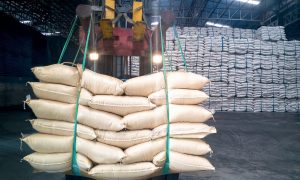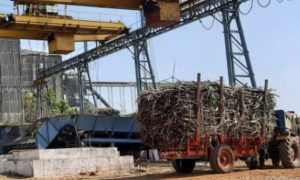Maharashtra : Cooperative CBG projects will offer a lifeline to sugar mills, say industry leaders

India: Maharashtra’s cooperative sugar mills are embracing Compressed Biogas (CBG) to boost revenue and sustainability. The first cooperative CBG plant, inaugurated by Amit Shah, will produce 12 tonnes of CBG daily from sugarcane byproducts. CBG projects aim to reduce imports, generate rural employment, and promote a circular, eco-friendly economy.
Maharashtra’s cooperative sugar mills are pinning new hopes on Compressed Biogas (CBG) as a sustainable revenue stream and a solution to long-standing financial instability. Millers believe that CBG projects could transform the sector by creating a circular economy that turns agricultural waste into wealth.
Union Home and Cooperation Minister Amit Shah’s recent push for CBG has given a strong boost to this optimism. In his visit to Kopargaon in Ahilyanagar district, Shah inaugurated India’s first cooperative-based CBG plant at the Sahakar Maharshi Shankarrao Kolhe Cooperative Sugar Factory. The ₹55-crore project will produce 12 tonnes of CBG and 75 tonnes of potash daily from byproducts such as jaggery and molasses. These products, currently imported by India, will now be locally produced, reducing import dependence and promoting Atmanirbhar Bharat (self-reliant India).
Shah announced that similar cooperative CBG units would be set up in 15 cooperative sugar factories across India, with Maharashtra expected to take the lead. Four cooperative mills in the state will be part of this first phase. “CBG projects can become a model of circular economy — where nothing goes to waste and everything becomes a resource,” Shah said.
Mills welcome the move
The Maharashtra State Cooperative Sugar Factories Federation Limited (MSCSFFL) has welcomed the Centre’s initiative. Its chairman PR Patil said that sugar mills have been struggling with liquidity issues and have repeatedly demanded a hike in the Minimum Selling Price (MSP) of sugar. Since the government has not yet revised the MSP, the Federation has urged mills to explore new income avenues that also benefit farmers. CBG can be one such long-term solution, Patil noted.
The Federation expects that, with government support, more sugar mills in Maharashtra will join this renewable revolution. CBG, they believe, can help the cooperative sugar sector achieve both financial resilience and environmental sustainability — turning the state’s sugar mills into engines of green growth.
Industry expert PG Medhe, who has long advocated for adopting green technologies, said that sugar mills must make full use of their byproducts — press mud, bagasse, and spent wash — to produce CBG through anaerobic digestion. “This is not only an economic opportunity but also an environmental necessity,” he stated, adding that CBG production helps reduce disposal costs, curbs pollution, and adds a steady income stream for mills.
Employment Boost
The shift toward CBG aligns with India’s national bioenergy goals, promoting renewable energy and reducing fossil fuel use. CBG also provides a rural employment boost. Farmers can earn additional income by selling agricultural residues and organic waste to CBG plants, while the process of biomass collection and transportation creates jobs and supports local economies.
According to government estimates, India’s total CBG potential stands at nearly 62 million metric tonnes (MMT), with a bio-manure generation capacity of about 370 MMT. Feedstock sources include agricultural residue, municipal solid waste, sugarcane press mud, distillery spent wash, cattle dung, and sewage waste.
To Read more about Sugar Industry continue reading Agriinsite.com
Source : The Hindu Business line

















